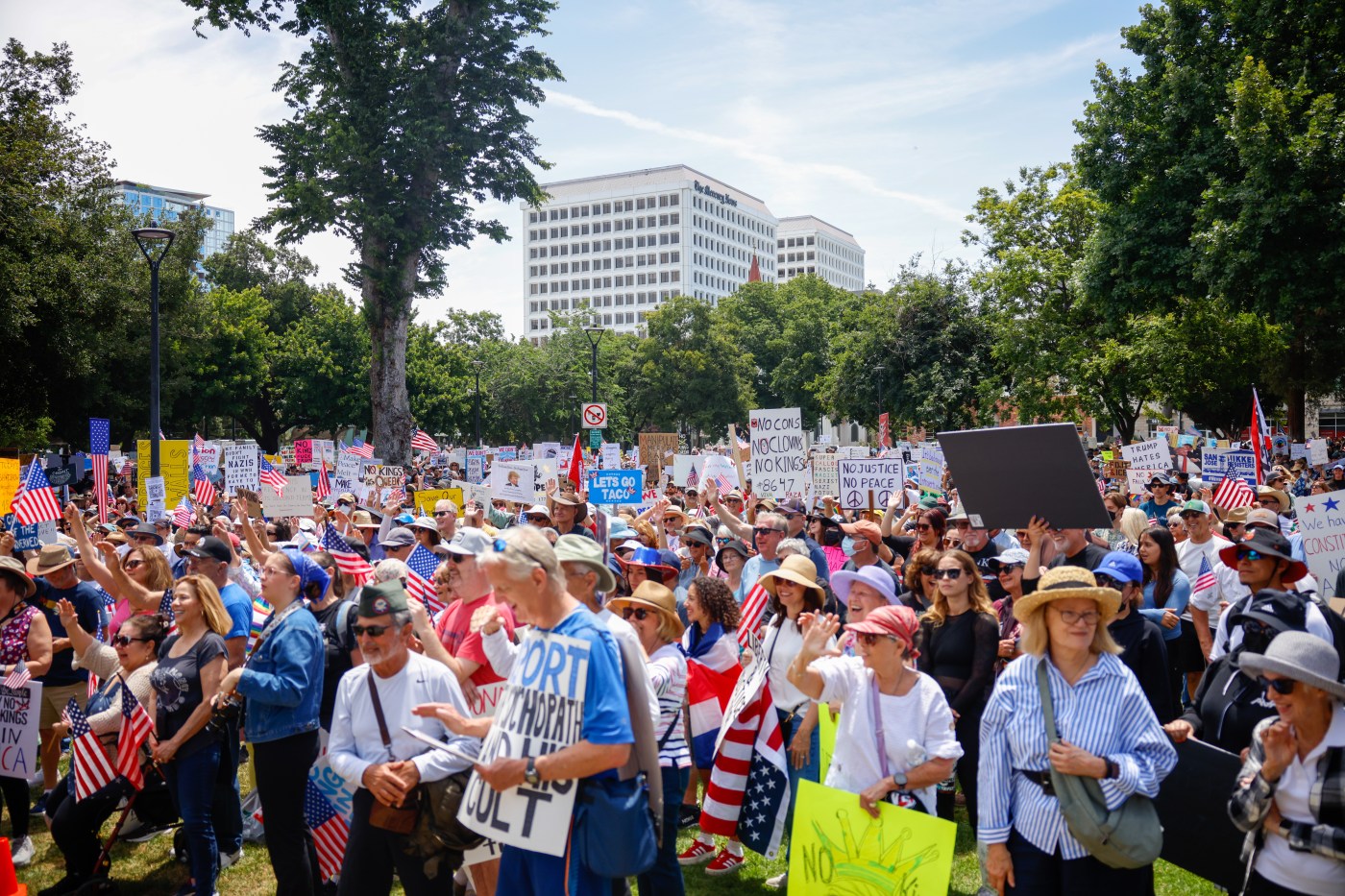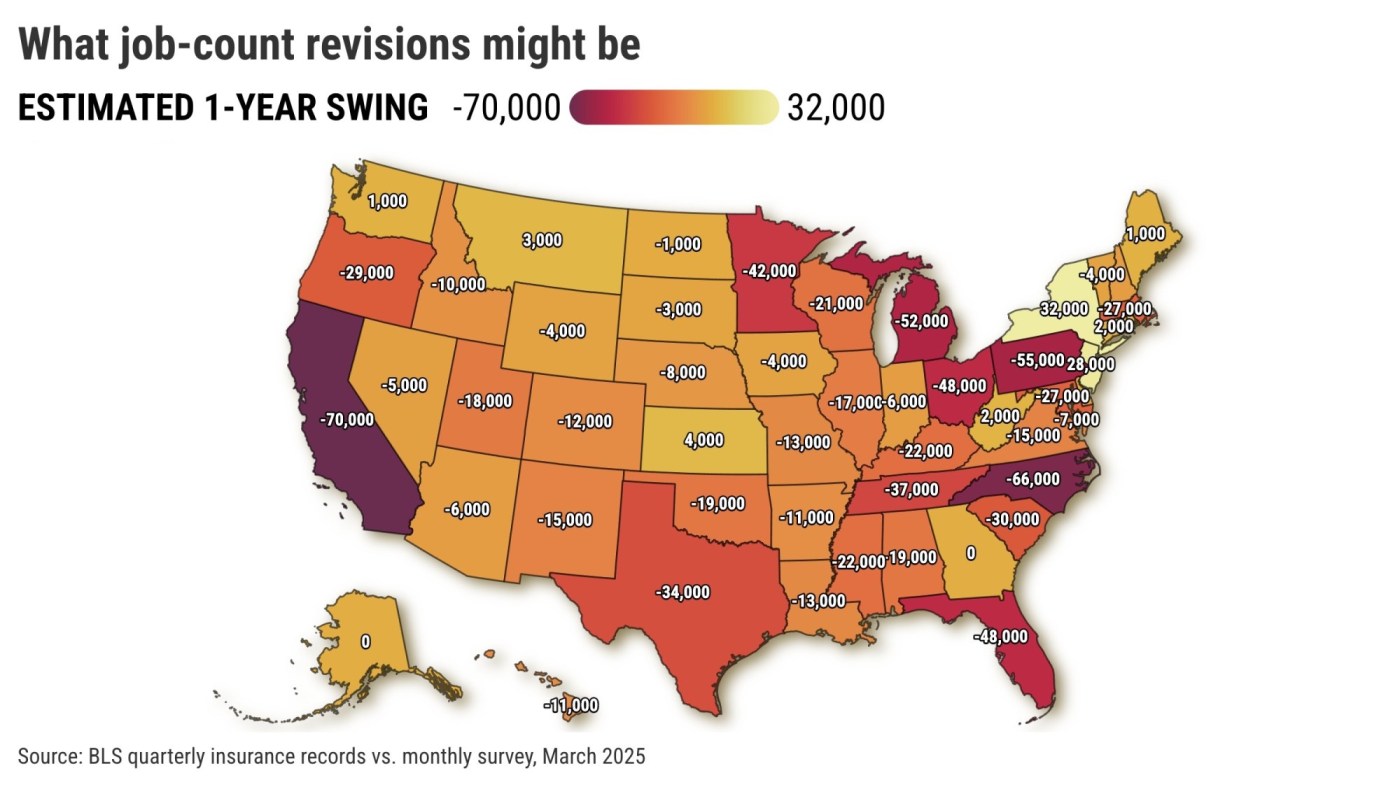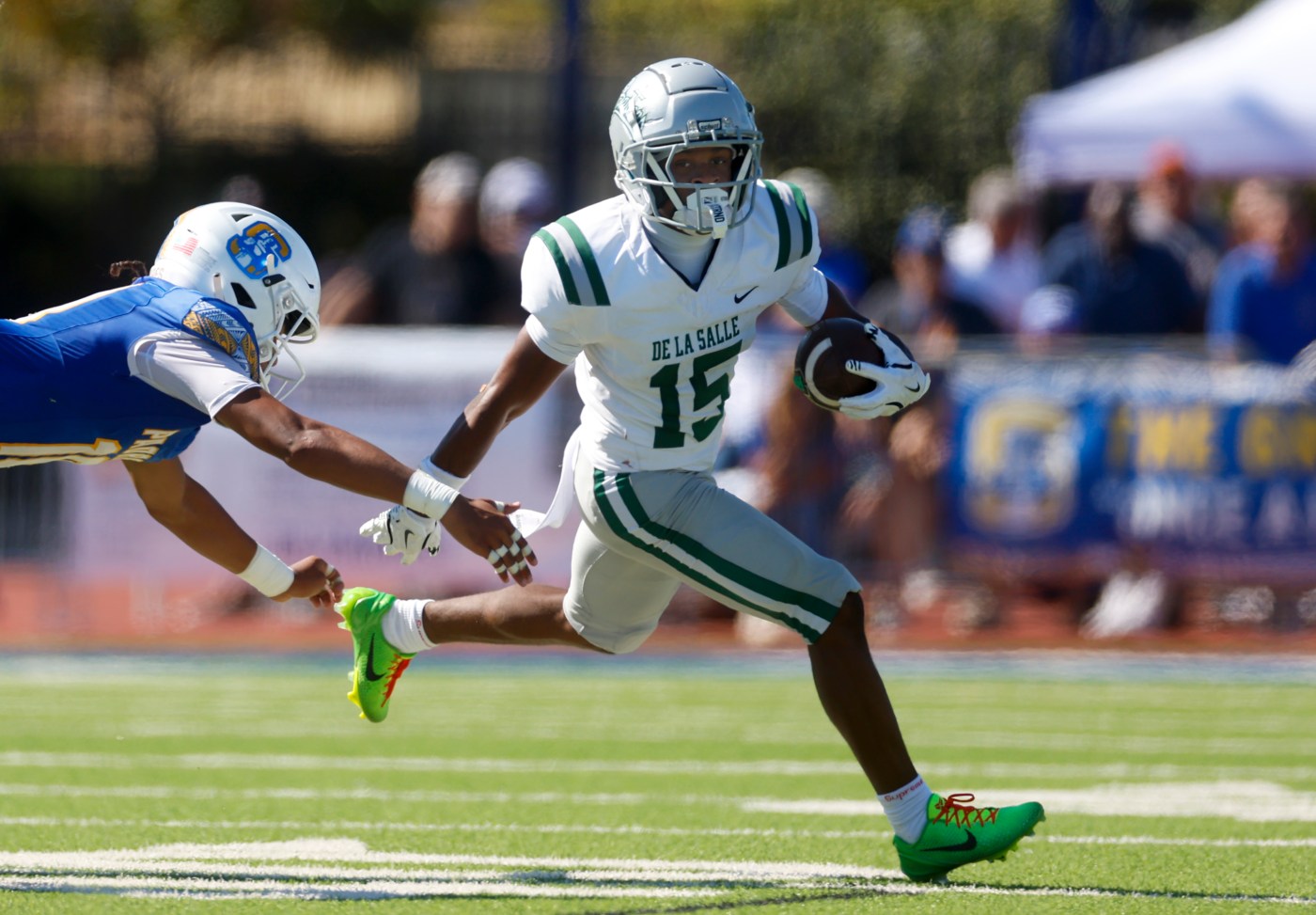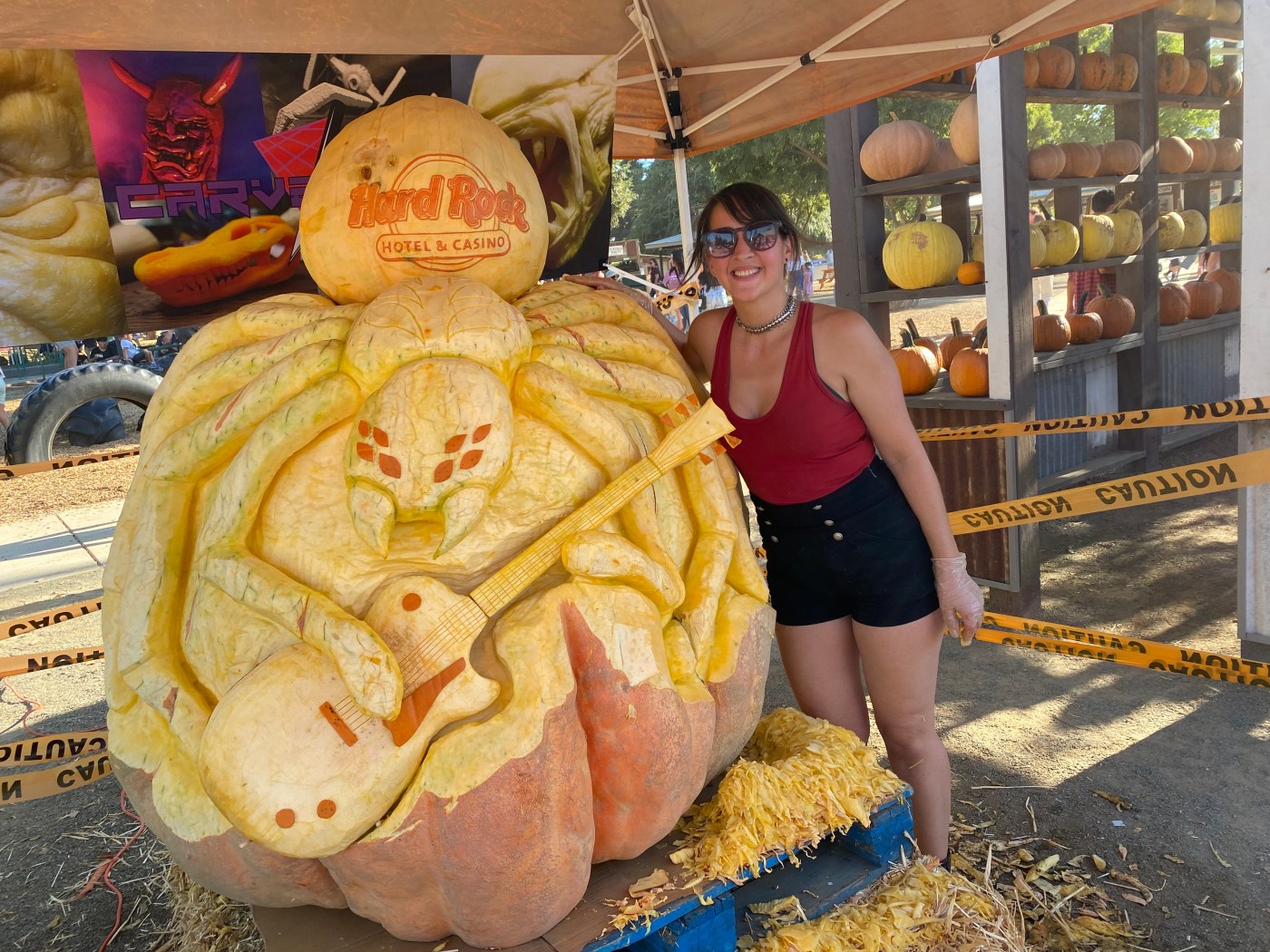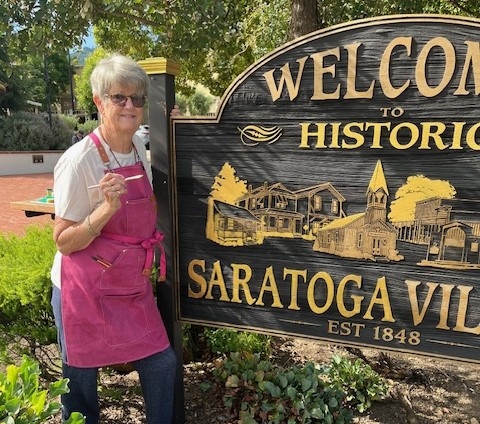If you want to go for a peaceful hike in San Jose, you go to Alum Rock or Almaden Quicksilver parks. If you want some family-friendly festival fun, Plaza de Cesar Chavez is the place for you. But if you want to stir things up, you’re going to St. James Park.
This weekend, the downtown park was set to be the site of a protest against President Trump’s policies. Saturday’s planned “Rage Against the Regime” demonstration at noon was just the latest in a long line of political statements and actions that have been made in St. James Park — including at least two high-profile anti-Trump protests this year.
A band plays at the base of the McKinley statue in St. James Park during the “No Kings” protest on June 14, 2025 in downtown San Jose. (Sal Pizarro/Bay Area News Group)
It’s where President William McKinley spoke to a crowd that overflowed onto First Street in May 1901, four months before his assassination. Sen. Robert F. Kennedy addressed another huge crowd in the park during his brief run for president in 1968. He, too, was killed by an assassin’s bullet weeks later in Los Angeles. Monuments to the two very different political figures are integral parts of the park today and have sometimes been the staging point for other speeches and demonstrations.
For decades, Plaza de Cesar Chavez — or Plaza Park, as it was then known — was overwhelmed by the old City Hall building and has since taken on a more celebratory role for the city. While there have been many gatherings, vigils, protests and celebrations at the new City Hall’s concrete plaza facing Santa Clara Street, its capacity is dwarfed by St. James Park.
A statue of President William McKinley in St. James Park, photographed in 2017, commemorates the spot where he spoke in downtown San Jose in May 1901. (Sal Pizarro/Bay Area News Group)
That capacity is one of the natural advantages that’s made St. James Park a magnet for big events. Its wide, open spaces can accommodate swelling crowds, and its location put it at the center of civic life. In its long history, it has been surrounded by three churches (two are still active), a hotel, a post office, a former Scottish Rite temple, the elite St. Clare Club and a courthouse, which at one point included the county jail.
That courthouse, of course, figured into one of San Jose’s darkest chapters, as it was where an angry mob went to grab Harold Thurman and John Holmes, two men accused of the 1933 kidnapping and murder of Brooke Hart, a Santa Clara graduate who was the son of the Hart’s department store owner. A mass of thousands crowded into St. James Park as the pair were stripped, beaten and hanged from two trees.
The Robert F. Kennedy Memorial Forum, photographed in 2018, was installed in St. James Park in April 1970, two years after the U.S. senator and presidential candidate spoke there in downtown San Jose, two months before his assassination in Los Angeles. (Sal Pizarro/Bay Area News Group)
Clyde Arbuckle’s “History of San Jose” recounts that during the Great Depression, radicals protested the nation’s economic ills while passing the hat among the gullible, while at other times, “hell-fire and brimstone evangelists” condemned sinners from park-bench pulpits.
But the park was a place to start movements, too. In 1976, more than 300 people attended San Jose’s first Gay Freedom Rally and Dance at St. James Park, which became the site of Gay Pride events for the next four years. For decades, efforts by San Jose churches and nonprofits — and even the costumed do-gooder known as Batman of San Jose — to clothe and feed the city’s homeless population centered around the park.
Related Articles
World’s largest Monopoly board to get a much-needed makeover
Santa Clara County Fair packing a lot into five-day run
After 84 years, Vahl’s remains the place to be in Alviso
San Jose honoring retiring CMT Artistic Director Kevin Hauge
San Jose’s Italian Family Festa seems fresher than ever
Today, plans are still floating around City Hall to revitalize St. James Park, including the addition of a Levitt Pavilion stage to host no fewer than 50 free events every year. If you squint, you could see the Friends of Levitt Pavilion’s concert series — the next one is Sunday with Valley Wolf and Ritmos Tropicosmos — as a form of protest, or at least the start of another movement to convince people that a concert stage at St. James Park is a worthwhile investment.
Honestly, anyone who thinks St. James Park isn’t a natural place for a stage probably hasn’t paid attention to its history.
TRIBUTE IN BRONZE: I recently wrote about the honors being bestowed upon Kevin Hauge, the retiring artistic director of Children’s Musical Theatre of San Jose, including the dedication of the Montgomery Theater courtyard in his honor. Thursday night, another tribute was unveiled in front of friends, family members and colleagues at a retirement party held at the James Grain Warehouse event space off West San Carlos Street.
Children’s Musical Theater San Jose Artistic Director Kevin Hauge looks at a miniature bronze likeness of himself created by artist Charlie DiNapoli, second from right, as San Jose City Councilmember Michael Mulcahy and emcee Andy Ferrara look on. The statue was unveiled at a retirement party for Hauge held at the James Grain Warehouse event space in San Jose on Thursday, July 31, 2025. (Sal Pizarro/Bay Area News Group)
This one is a bronze likeness of Hauge sitting in a director’s chair that was sculpted and cast by artist Charlie DiNapoli, a Santa Clara University grad. The artwork was commissioned by Shirlee DiNapoli Schiro — Charlie’s great-aunt — before she died in September 2024 and will be displayed at CMT San Jose’s rehearsal hall on Parkmoor Avenue.
STUDIO VISIT: Diane Brandenburg got a close look last month at one of the many nonprofit projects she has funded through the Brandenburg Family Foundation when she paid a visit to the ArtHouse Studio camp at the King Library in downtown San Jose. Brandenburg — an artist herself whose paintings have been shown at the Triton Museum of Art in Santa Clara — sat with the third- to fifth-grade students on July 22 as they worked on their own watercolor paintings.
While the camp is over now, ArtHouse Studio CEO and founder Julie Stover is gearing up for the school year, when the nonprofit brings arts education to under-resourced schools and classrooms in the valley. You can check out at www.arthousestudioca.org.
MEMORIES OF VAHL’S: My recent column on Vahl’s restaurant and bar in Alviso spurred a lot of memories among readers, including Santa Clara Valley Water District Director Richard Santos. He worked for Amelia Vahl, who was great friends with his dad, and he remembers when Gov. Pat Brown stopped in to eat.
Milpitas resident Bill Ott says that when he was working for Wells Fargo on Abbott Avenue back in the 1960s, Eric Vahl used to bring in the restaurant’s deposit in a big cloth sack. And later, when Ott worked at the Ford plant — on the site of the Great Mall today — the workers would head to Vahl’s for lunch most days.
Meanwhile, John Doll says his grandmother knew Amelia Vahl quite well and they would visit the restaurant on special occasions for decades. “There was always an intense discussion at the end of a meal because Amelia insisted that my family did not pay,
said Doll, who also wonders if that might have been because his dad was a judge and every time he was faced with a hung jury, he sent the jurors to Vahl’s.
By the way, Doll noted that Amelia Vahl used to operate the now-demolished Costa Hotel in San Jose before she and her husband opened Vahl’s in 1941. Doll wrote a blog post about the old Italian hotels in the area — including the Torino Hotel, which became Henry’s Hi-Life — that you can read at www.johndollbooks.com/post/italian-immigrant-hotels.
